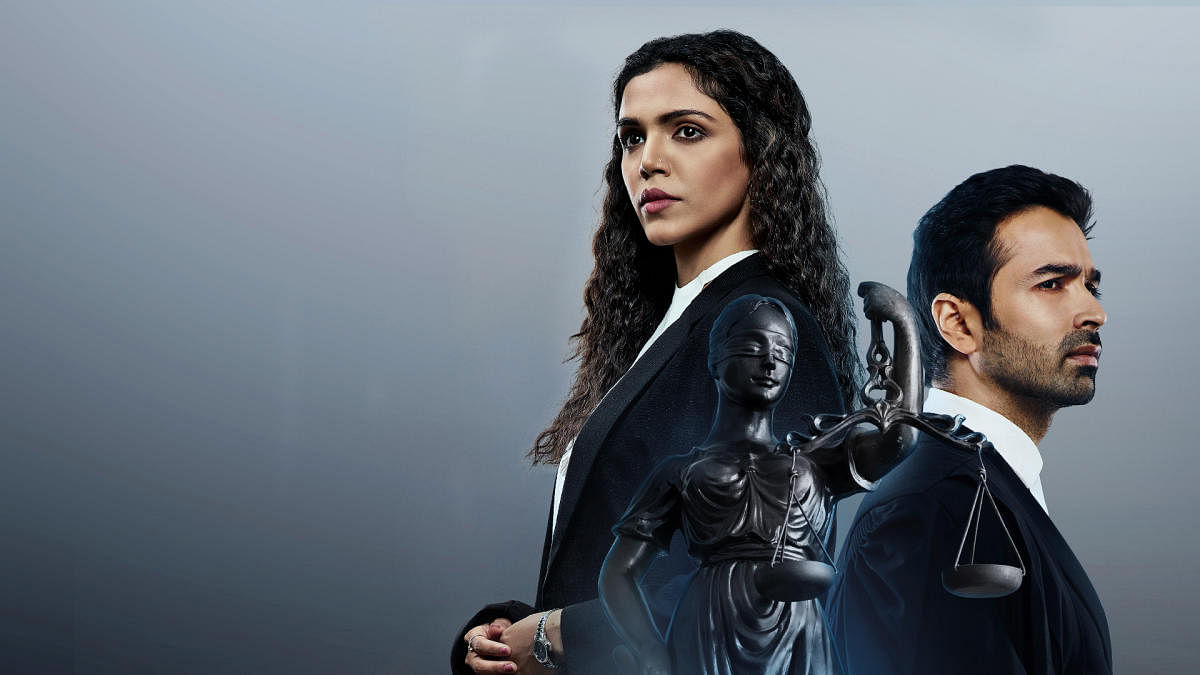
Upma, pasta and khichdi blended and drank with a straw. This was the first thought that came to me when I was watching ‘Guilty Minds’ on Amazon Prime Video. A friend compelled me to watch the series. “You are a lawyer; you must see the series. It is so real and thought provoking” she said.
The Hindi web series revolves around two lawyers who travel all over the country practicing law. The series exudes a vibe that can be described as a mishmash of ‘Suits’, ‘Ally Mcbeal’, ‘Legally Blonde’ and ‘Four More Shots Please’ (hence the food reference above).
A few facets of the judicial system in the web series are accurate. The actors don robes when appearing in the Supreme Court and the robe is absent when they are in the trial courts. Other aspects such as pass overs, bench constitution, judges’ impatience, dinky court halls bereft of infrastructure are eerily accurate.
However, the show’s overall portrayal of the judicial system is one of speed, out of turn witness depositions, dramatic and opera-type arguments and spontaneous emotional outbursts from all actors at all times. Although, if director Shefali Bhushan attempted an immaculate depiction of our judicial system, the screening of the show would be adjourned repeatedly and indefinitely.
Kashaf (played by Shriya Pilgaonkar) and Deepak (Varun Mitra) jet-set around the country playing the role of investigators, activists, instigators, and lawyers at the same time. The show is rife with tropes relating to feminism, women’s liberation, economic disparities, and influence. Despite a solid content to tell through court proceedings, ‘Guilty Minds’ puts the spotlight on a petty ‘Will-they, won’t-they?’ between the lead actors.
The focus is also on corruption and influence. In this chaos of multiple story lines, the ‘Guilty Minds’ tosses in gratuitous sex, pointless profanities and women smoking and drinking beer, as-if to emphasise on ‘progressiveness’ and draw parallel with cultures from the West.
The back stories are placed in dichotomous settings such as meetings on a golf course, opulent offices, squash courts, private jets, and luxury resorts on one hand and small dhabas, alleys, moderate living quarters, small offices, and inspection bungalows on the other. This doesn’t make ‘Guilty Minds’ any better as the side-story settings have no semblance of realism to them.
‘Guilty Minds’ attempts to portray both sides of any pertinent socio-cultural issue. Complex areas such as rape, consent, social taboos, and environmental issues are well researched. These nuanced facets could have been riveting had they been represented sensitively.
‘Guilty Minds’ fails to provide a voice to its main theme. A strong premise is shrouded in over-the-top conclusions. The show sometimes represents the law incorrectly, and a question arises if a ‘legal drama’ ought to be immaculate about its interpretation of the law.
The disclaimer states that ‘The series contains expletives, strong language and explicit visuals including intimate scenes that support the storyline.’ However, the series unfortunately does not go beyond these aspects. Not everyone would share my criticism of the show. It has received rave reviews, with many hailing its ‘refreshing realism’.
The Law is an enigma to most of us. ‘Guilty Minds’ presents it in a dramatised and palatable manner, and perhaps this has found favour with the audience. The show’s producers assume this to be a serious legal drama as the disclaimer even contains spiel regarding respect for advocates, judges and the legal system. That said, the ‘Guilty Minds’ is at best watchable but mostly tacky and half baked.
(The author is an advocate practicing in the High Court of Karnataka).